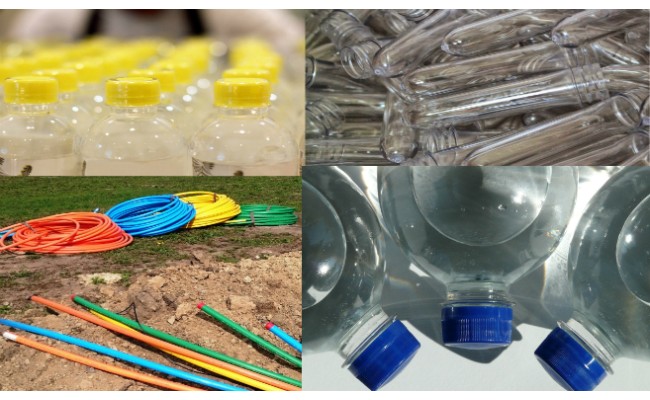- Call: +1 850 633 2663

Polyethylene resins are the largest volume plastic material used worldwide, approximately 80 million metric tons. In spite of a rather simple structure, polyethylene is a relatively diverse material used in a wide range of applications. One of the things that make polyethylene unique is the variation in structure, resulting different classes of polyethylene, including high density polyethylene (HDPE), low density polyethylene (LDPE), ultra high molecular weight polyethylene (UHMWPE), and cross-linked polyethylene (XLPE). Polyethylene is classified by a combination of crystallinity/density, chain branching, and molecular weight/melt flow rate. The various types of polyethylene are utilized in the manufacturing of products in numerous industries:
- Packaging: plastic bags, film, bottles, buckets, drums, caps & closures
- Pipe: water, natural gas
- Electrical: wire insulation
- Automotive: fuel tanks
- Medical: prosthetics, packaging
- Industrial: conveyor systems filtration media, gaskets for recreational
- Toys
Part of the diversity of polyethylene is that it can be processed in many different ways, including injection molding, blow molding, extrusion, and thermoforming.
In order to effectively design and produce products made from polyethylene, it is essential to thoroughly understand the nature of this material, including the mechanical, thermal, and chemical properties. This online training will differentiate between the various types of polyethylene, illustrating the advantages and disadvantages over other materials. Information will be discussed to allow the attendees to select between the various grades, and which grade within those types may be the most beneficial for a particular application.
While the structure of polyethylene is relatively simple, and it is often viewed as a commodity resin, polyethylene can be used in many engineering and demanding applications. In order to do this, however, there must be a thorough understanding of the material.
This is a must have training for engineers and technicians responsible for the design, manufacturing, or testing of components produced from polyethylene. Non-technical staff members, including managers and those involved in purchasing may also find the course of value. This would include those employed at OEMs and contract molders.
2 reviews